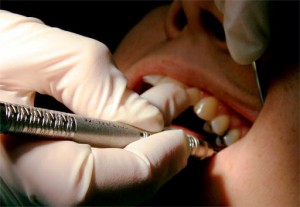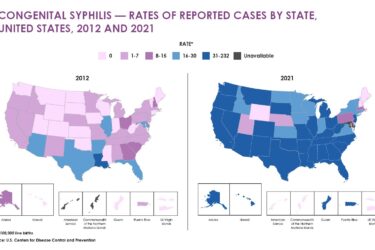
Michigan has become the latest state to approve the use of mid-level dental providers — dental therapists — as part of an effort to expand oral health care to communities that have long lacked it.
Outgoing Republican Gov. Rick Snyder signed legislation authorizing the new provider model in late December.
In a statement, Snyder said that dental therapists would serve as “a unique tool to target the currently underserved populations in our state.”
With the new measure in place, Michigan joins Minnesota, Maine, Vermont and Arizona in approving the use of dental therapists statewide. The model is in use in tribal lands in Alaska, Washington and Oregon. A bill headed to the governor’s desk in New Mexico will help people who are low-income, publicly insured, uninsured or living in rural and tribal areas have access to care from a dental therapist.
Dental therapists, often compared with nurse practitioners, have been in long use in countries around the world, but are relatively new in the United States. They receive training in a range of dental services, including drilling and filling teeth, and work as members of dentist-headed teams.
The Michigan bill signed into law “allows graduates of an accredited dental therapy education program who have completed 500 hours of clinical practice, supervised by a dentist, to provide preventive and specific restorative dental services to patients,” Dimensions of Dental Hygiene reported. The providers will work under the supervision of a dentist through a written practice agreement, the trade publication noted.
Michigan’s new providers will be expected to serve in safety net settings including federally-qualified health centers, rural health centers, school-based clinics and in communities with shortages of providers, said Snyder in comments included in a story on the new law by James Gemmell of Fox 17 in Grand Rapids.
In Michigan, 78 of the state’s 83 counties have at least one dental provider shortage area, according to the Michigan Dental Access Coalition, a group of health and social advocacy organizations that supported the dental therapist legislation.
The lack of care has disproportionately impacted vulnerable residents, including seniors, pregnant women, children in low-income homes and those living in rural areas, advocates say.
Such concerns are common nationwide. At least a dozen more states are considering allowing dental therapists to practice as a cost-efficient way of expanding care, according to the Pew Charitable Trusts,which supports the technically trained workers and tracks legislative efforts to increase their use.
But the model has faced strong opposition from state and national dental organizations over the years. Their professional groups have fought dental therapist initiatives, contending that only dentists are qualified to perform what they regard as “irreversible procedures” such as drilling and extracting teeth.
In the months leading up to the passage of the Michigan law, Debra Peters, president of the Michigan Dental Association, argued against the measure in a guest commentary published in Bridge, a nonprofit news site serving the state. She said that dental therapists would lack the expertise to serve vulnerable and medically complex patients who had long lacked care.
“Adding more provider types to the workforce … may seem like an easy solution. But complex problems are rarely solved by easy solutions,” Peters wrote. “These are not patients who need simple extractions and cleanings. Band-Aid treatments would only result in more visits for the patient, more cost, and potentially serious complications.”
In response to provider shortages, the ADA has developed a model called a community dental health coordinator. The workers, who receive training in disease prevention, care coordination and patient navigation, are tasked with getting people into care.
Want additional resources on this issue? Check out this updated tip sheet.






